|
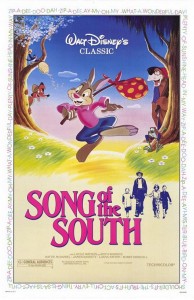
Synopsis:
While staying on his grandmother’s plantation, a lonely boy named Johnny (Bobby Driscoll) befriends an older slave named Uncle Remus (James Baskett), who tells him tall tales about Br’er Rabbit, Br’er Fox, and Br’er Bear. Meanwhile, Johnny meets a poor white girl (Luana Patten), who — against her bullying brothers’ wishes — gives him a puppy. Trouble arises when Johnny’s mother (Ruth Warrick) refuses to allow him to keep the puppy, and — thinking Remus’s stories are giving Johnny fanciful notions — asks them not to spend time together.
|
|
Genres, Themes, Actors, and Directors:
- African-Americans
- Animated Features
- Deep South
- Folk Tales, Fairy Tales, and Mythology
- Friendship
- Musicals
- Plantations
Review:
Disney’s Song of the South remains one of the most controversial films ever made, due to its depiction of slaves on a southern plantation as seemingly happy and content. In truth, however, it’s one of the milder portrayals of African-Americans to come out of early Hollywood, and is certainly less offensive than, for instance, the slaves in Gone With the Wind (1939), who are portrayed as either comic, ignorant, bossy, servile, lying, and/or lazy. While Uncle Remus is (on the surface) subservient to his mistress, he’s ultimately shown to be a savvy, independent man with an enormous heart. Most impressive of all, however, is Song of the South’s depiction of interracial friendship as both acceptable and normal; Warrick’s complaints about who Johnny spends his time with have more to do with class than race — and the only reason she doesn’t want him listening to Uncle Remus’s stories is because she believes they’re giving him “fanciful notions”.
Critical opinion on Song of the South these days remains divisive, with Disney purportedly holding back on a DVD release for years due to fear of p.c. repercussions. It’s my belief, however, that parents ought to be allowed to make up their own minds about how (or whether) to show this film to their children: with an age-appropriate disclaimer about the film’s depiction of slaves (which, by the way, would be an excellent starting point for broader discussions on the topic, as well as a critical analysis of the Br’er Rabbit tales), kids will likely enjoy the film, and relate to Johnny’s travails. As a narrative, Song of the Southis ultimately too schmaltzy for its own good, but does feature some enjoyable animated sequences (which no Disney fan will want to miss), and a truly noteworthy performance by Baskett as Uncle Remus. It’s devastating to know that Baskett — despite winning an “honorary” Oscar — couldn’t attend the film’s premiere in Atlanta because no hotel would rent him a room; it appears that adults of the day were unable to take the film’s lessons about racial tolerance to heart.
Note: Believe it or not, an entire website is devoted to news about the film.
Redeeming Qualities and Moments:
- James Baskett as Uncle Remus
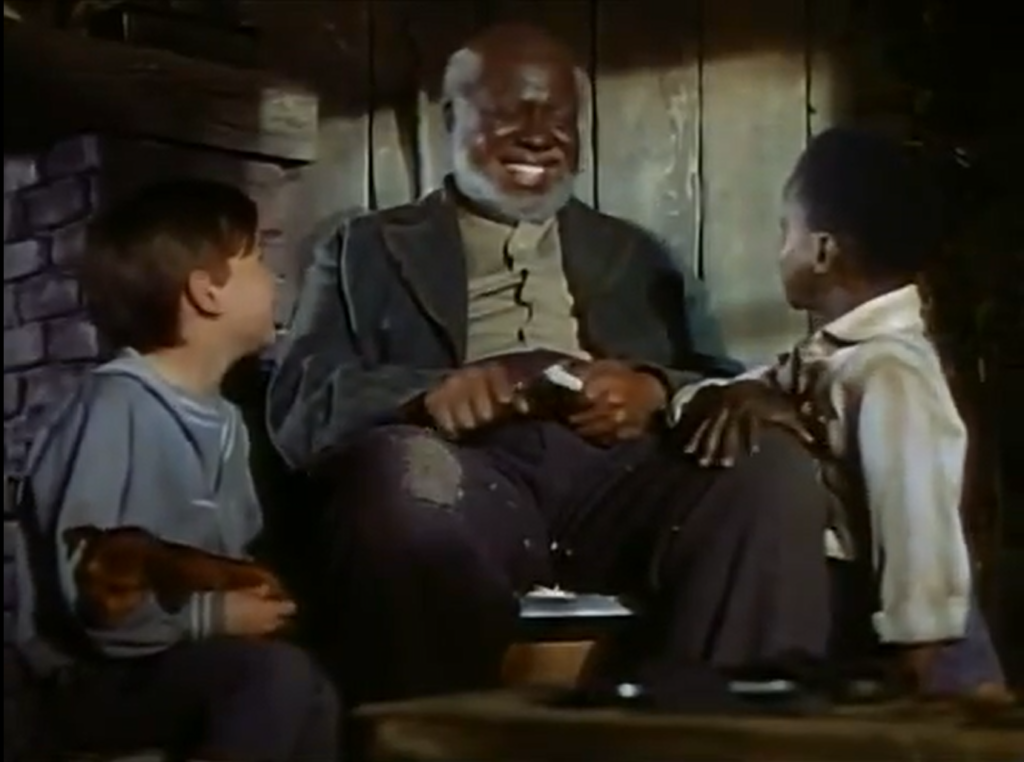
- Bobby Driscoll as Johnny
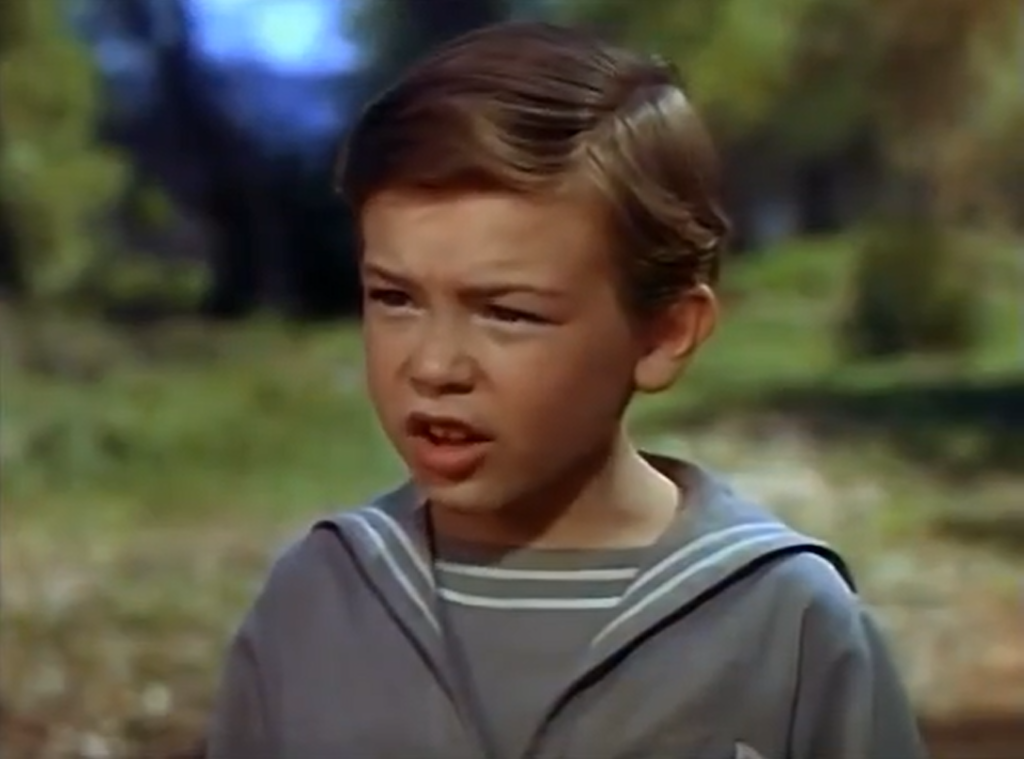
- Several amusing tales about crafty Br’er Rabbit
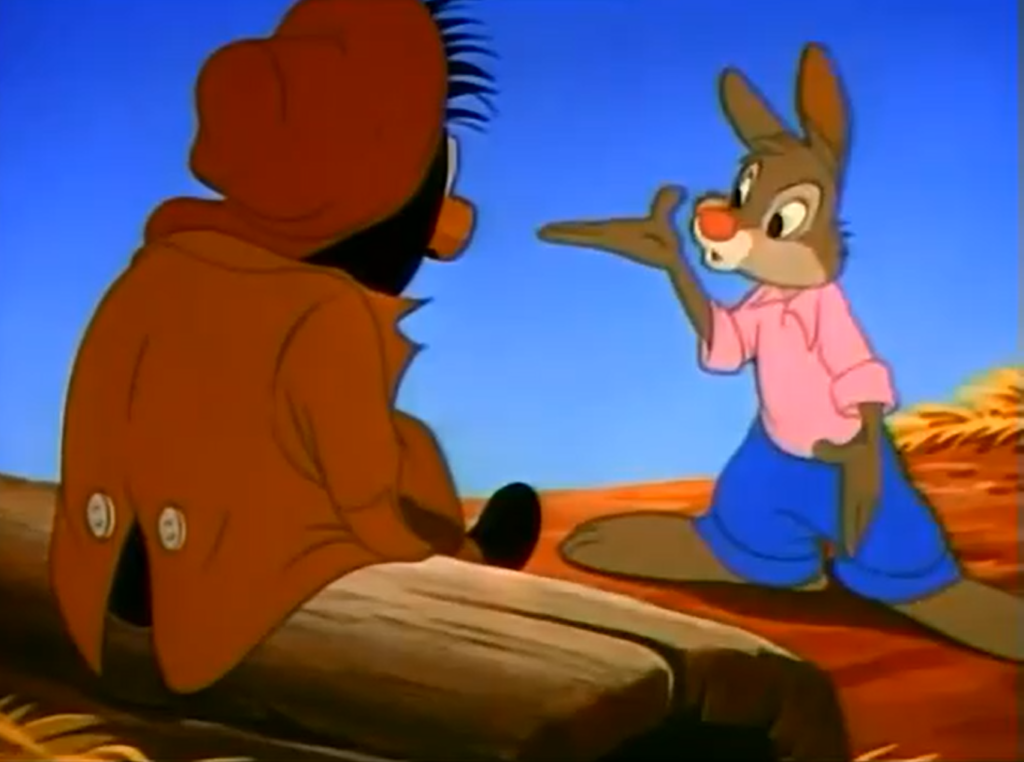
- Nifty integration of live action and animation
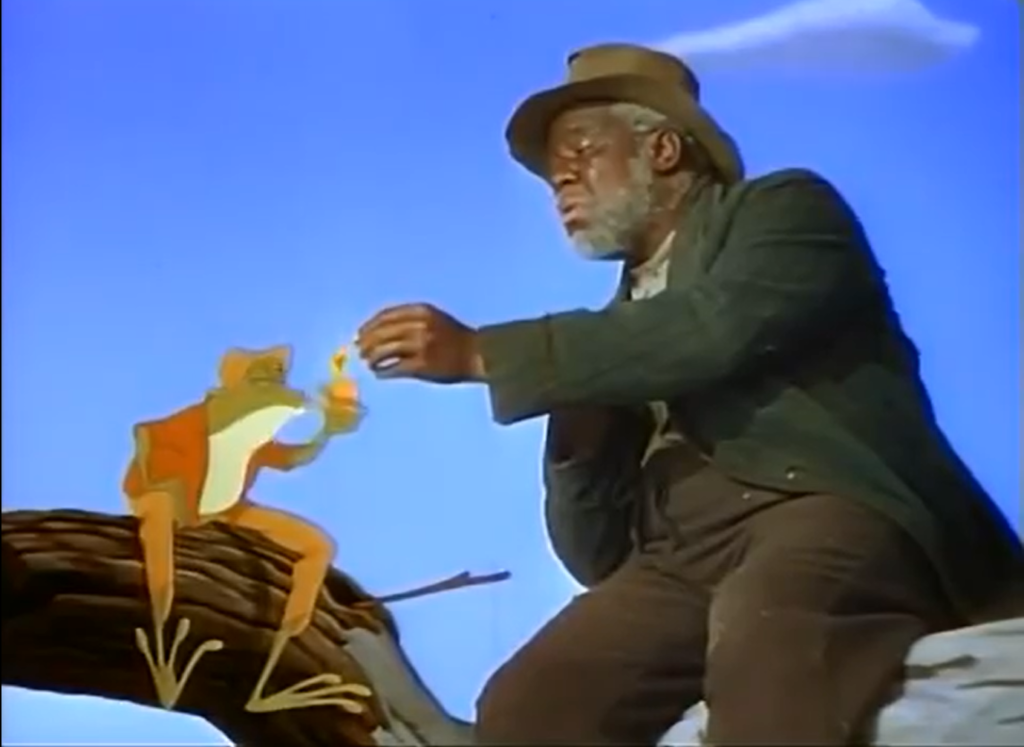
- Uncle Remus singing “Zip-A-Dee-Doo-Dah”
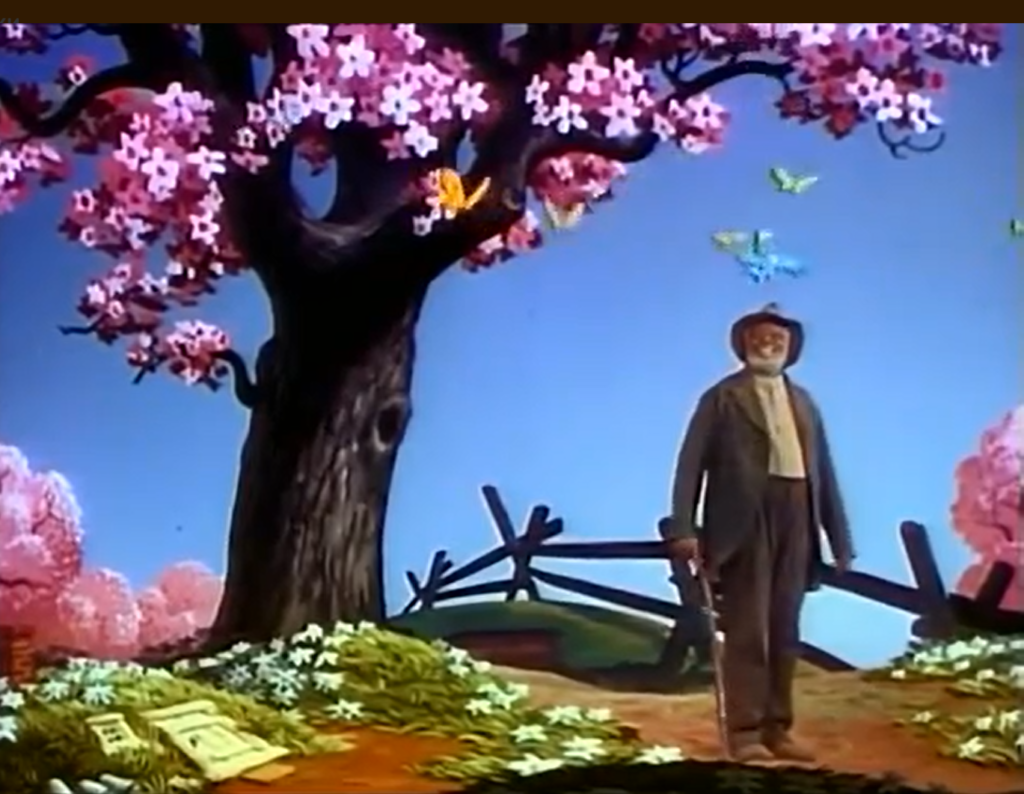
- A refreshing tale of friendship transcending race, gender, class, and age

Must See?
Yes.
Categories
- Controversial Film
- Cult Movie
- Oscar Winner or Nominee
Links:
|







2 thoughts on “Song of the South (1946)”
Yes, a must.
The brouhaha over this ‘controversial’ movie is much ado about very little. As implied by the assessment, we don’t see ‘Gone With the Wind’ under lock and key, do we? Not to mention the countless titles that are ‘offensive’ to one group or another, or how about to women, or possibly even men? Though I’ll concede the point that protest against certain depictions can serve to pave the way for better ones – and such protests continue to this day – that’s no reason to keep something as relatively innocuous as ‘Song of the South’ under a rock. Seen in context, ‘SOTS’ is an invaluable historical document. I imagine that once it gets a DVD release, sales will go through the roof – mostly due to people who will ultimately be disappointed by the somewhat specious argument that has kept ‘SOTS’ under wraps.
[Sometimes even protest is wrong-headed. I recall the furor over ‘Cruising’. While it’s understandable that gays did not want general audiences to think that the film was a reflection of most gay lifestyles, protestors seemed unaware of the fact that ‘Cruising’ director William Friedkin had also helmed the very sympathetic ‘The Boys in the Band’. Most likely that was deemed irrelevant.]
As for the film itself, aside from a short bit here and there, I don’t find it particularly schmaltzy – in fact, it seems among the more intelligent of children’s films; one that adults can enjoy as well. (Unlike many of the more modern Disney films – which I don’t tend to consider must-sees, except perhaps for budding ffs.) I don’t quite get what’s going on with the father – what kind of incendiary stuff is he writing as a newspaper editor? (Could it, in fact, be anti-slavery editorials?) Not that the plot hinges on that; the focus is more on mom who, though she wildly enjoyed Uncle Remus’ tales as a child, has become a hypocrite as an adult. (And is she purposely trying to raise a gay child? What’s with the doily lace collar on the Fauntleroy suit, complete with knee-high white socks? As Johnny rightfully inquires, “Do I have to wear that suit? …And the collar, too?”)
But, obviously, even more focus is on son Johnny and the wisdom imparted by Uncle Remus and his tales – given full-reign impact by spectacular animation sequences (the first, containing ‘Zip-A-Dee-Doo-Dah’, is literally thrust on-screen, and delightfully so).
The film’s penultimate scene – apparently overlooked by its ‘censors’ – does more than its part as protest against the color boundary. And the film itself is capped with an unexpected, very satisfying twist.
[At the ‘SOTS’ website, there’s a link to ‘The 25 Most Controversial Films’. While many of them listed remain troublesome indeed, it’s amazing that ‘SOTS’ is listed as #5! …And ‘Midnight Cowboy’ is locked in as #2! Huh?!]
It’s actually set circa 1870 and all of the African Americans in the film are meant to be free.
In any case, a superb, uplifting, feel good film. Unmissable.